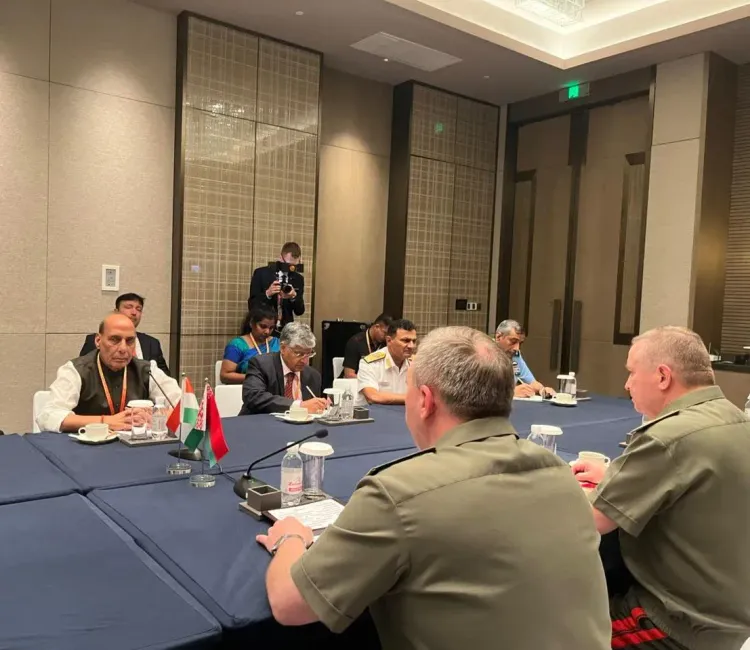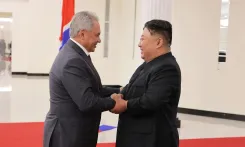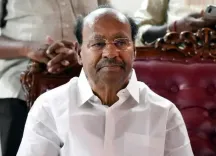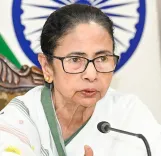What Insights Did Rajnath Singh Gain from Meetings with Belarusian and Russian Defence Ministers in China?

Synopsis
Key Takeaways
- Rajnath Singh's meetings highlight India's proactive defence diplomacy.
- Long-standing ties with Russia focus on advanced military technology.
- India's zero-tolerance policy towards terrorism was reaffirmed.
- Belarus' membership in SCO signifies growing geopolitical alliances.
- Regional security challenges require unified global action.
Qingdao, June 26 (NationPress) Defence Minister Rajnath Singh engaged in discussions with his counterparts from Belarus and Russia during the SCO Defence Ministers Meeting held in Qingdao, China. The meetings focused on enhancing bilateral defence cooperation and addressing regional security challenges.
Singh shared on X, "Enriching interaction with Belarusian Defence Minister Lieutenant General Viktor Khrenin in Qingdao." This meeting marked a significant moment as it coincided with India’s first presidency of the SCO in 2023, during which Iran became a new member and the Memorandum of Obligation for Belarus' SCO membership was signed.
Additionally, Singh met with Russian Defence Minister Andrey Belousov, where they discussed their countries' extensive defence collaboration. Singh noted, "Happy to have met Defence Minister Andrey Belousov; we had insightful discussions on strengthening India-Russia defence ties."
The cooperation between India and Russia is extensive, guided by the IRIGC-M&MTC mechanism led by the Defence Ministers. Both nations have partnered on numerous projects, including the supply of S-400 missiles, licensed production of T-90 tanks and Su-30 MKI, and the manufacture of Ak-203 rifles in India, among others.
New Delhi and Moscow have transitioned their military cooperation from a simple buyer-seller relationship to one involving joint research, development, and production of advanced defence technologies.
While addressing the gathering of defence officials, Singh emphasized the need for global unity against terrorism, radicalization, and extremism, labeling them as the most significant threats to regional peace. He referenced the tragic April 22 Pahalgam terror attack that resulted in the deaths of 26 civilians, urging SCO nations to hold terrorism sponsors accountable and reject double standards.
Singh declared, "Epicentres of terrorism are no longer safe," reiterating India's zero-tolerance policy towards terrorism.
This visit followed India's Operation Sindoor, which targeted high-value terrorist infrastructures in Pakistan after the Pahalgam attack, and marks the first visit by an Indian Union Minister to China since relations soured due to the military standoff along the Line of Actual Control (LAC) in eastern Ladakh since May 2020.








